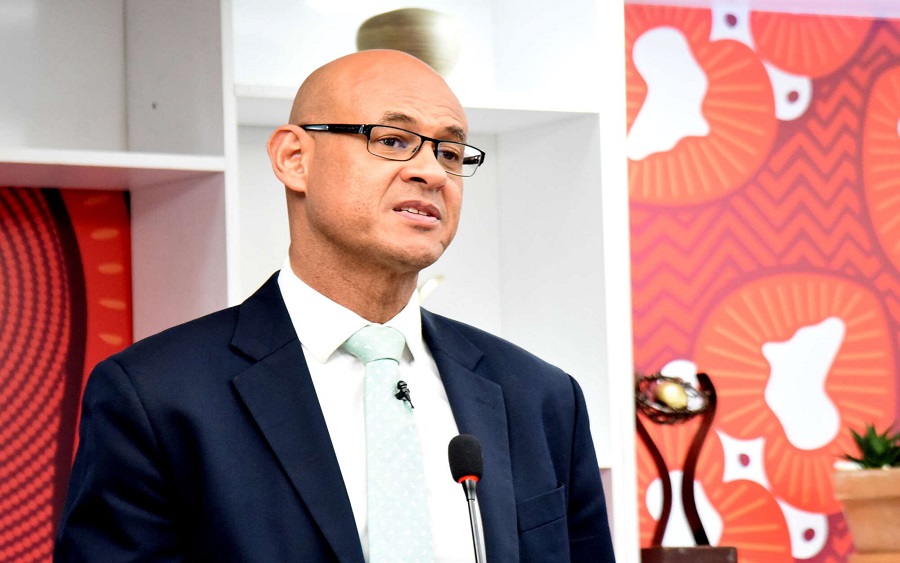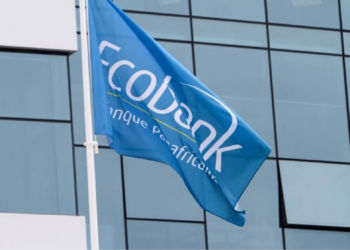Key Highlights
- Ecobank Transnational Incorporated reported an impressive 2022 performance, growing profit before tax by 18%.
- Based on its price-to-earnings ratio compared to its peers, industry and NG market, its share price appears cheaper.
- However, its Nigeria Business is floundering and underperforming compared with other regions.
Ecobank Transnational Incorporated’s (ETI) profit before tax rose to a 5-year-high of N230.55 billion ($540.029 million) in FY 2022, according to audited financial statements seen by Nairametrics.
The banking group’s operating income also grew by 10.50% N794.860 billion ($1.862) billion in 2022; the highest in five years. The last time the Group had a higher figure ($1.972 billion) was in 2016.
Conversely, its operating expenses marginally grew by 5.85% on-year to N448.441 billion. This indicates that the bank was somehow able to show discipline around cost management. This is evident in its cost-to-income ratio of 56.4%, the lowest in 6 years and also below its 2022 guidance (57%-59%).
More details of Ecobank’s 2022 financial performance
Though profit after tax from continuing operations moderated at a 7% year-on-year growth to N156.552 billion on the back of higher tax expenses from other geographic reporting segments, it still affirms the bank’s consistent earnings over the years.
For instance, annual earnings history over the past 5 years (2017-2021) has a compound annual growth rate (CAGR) of 10.66%.
Also, the 2022FY results affirm the bank’s strong revenue diversification supported by a broad geographic footprint across four reporting regions and an average non-interest income of 48% of total revenue for the last six years.
- “Ecobank’s strong 2022 performance reflects the strength of our diversified business model, growth momentum and efficiency, and was achieved despite operating in a challenging macroeconomic environment, which also included the difficulties that Ghana’s debt restructuring exercise placed on us,” said the company’s Group CEO Jeremy Awori.
However, it is important to note that its Nigeria business contributed only 12% ($239 million) to the group’s net revenue; the least among the four main regions.
A breakdown of the PBT shows that Nigeria’s business contributed only 5%, while Francophone West Africa (UEMOA), Anglophone West Africa (AWA) and Central Eastern and Southern Africa (CESA) contributed 30%, 36% and 28% respectively.
Total assets and stock performance
That said, the Pan African lender is still one of the largest banking groups on the continent outside of South Africa with total assets up $29.004 billion or N13.373 trillion as of December 31, 2022, and subsidiaries spanning 33 Sub-Saharan Africa (SSA). That is not all.
More so, despite the growth in average total assets year-on-year, its cost-to-total assets improved to 3.7% from 3.9% a year ago, demonstrating further improvements in the bank’s cost structure.
Following the impressive performance, the bank proposed a final dividend of $0.11 per share to be paid on June 6, 2023, for shareholders whose names appear on the Register of Members as of May 25, 2023.
Last year, the stock rallied at 21.84% YtD gain, outperforming the NG Banks industry and NGXASI. But this year, its gain YtD remained flat as of the close of trading on Thursday, April 6, 2023.
Cost Perspective
Overall, we expect the Bank to continue to improve on its revenue drive and cost containment to reduce its cost-to-income ratio further.
- Though the Group’s cost-to-income reducing strategy seems to be yielding results, considering the declining trend of the cost-to-income ratio, it is still high at 56.4%.
Focus on the Nigeria region
Nigeria is the largest market in Sub-Saharan Africa and should hold the future potential for the Group. So the need to focus on growing revenue, cost efficiency and digital payment systems should be highly prioritised.
- Partly affecting the region’s comparatively poor performance are high expenses, high net impairment charges on loans and a low growth rate in non-interest income.
- Ecobank Nigeria grew its non-interest income by only 4% even with the support of the one-off gain of $21.5 million from the sale of Ecobank Nigeria’s old head office building and other non-core properties.
- Cost-to-income ratio though improved slightly to 79.8% from 81.2% in the prior year, is still higher than the group’s cost-to-income ratio and a drag on the group’s earnings.
- The region’s Net impairment charges on loans at $17 million compared to $11 million in the prior year is still high. Though Management believes that its efforts to improve the NPL ratio further in the 4Q were reasonable as the NPL ratio reduced to 6.95% at year-end from 8.7% in Q3 2022 and 16.3% in 2021, it is still high compared with other regions.
Ecobank’s valuation
Over the past 5 years, the bank has consistently grown its earnings accumulating $1.336 billion in profits. As ETI is profitable we used its price-to-earnings ratio for relative valuation analysis.
- Based on its price-to-earnings ratio (2.13x) compared to Zenith Bank (3.6x), the peer average (4x), African Banks Industry average P/E ratio of 5.8x and NG Market (6.6x), indicates that the current price, the stock is cheaper relative to its earnings potentials, its peers and the market.
- Invariably the P/E ratio is pinpointing that Ecobank’s share is undervalued.
Overall, the bank was able to beat its key 2022 guidance ratios and has provided 2023 guidance. As we wait for the release of its Q1 2023 results, of importance is whether the bank will miss or beat its guidance.





















The financial report is excellent and the account is transparency